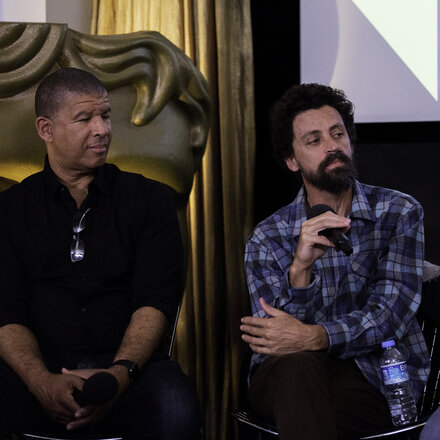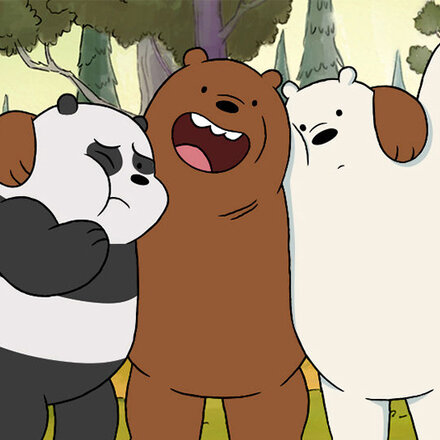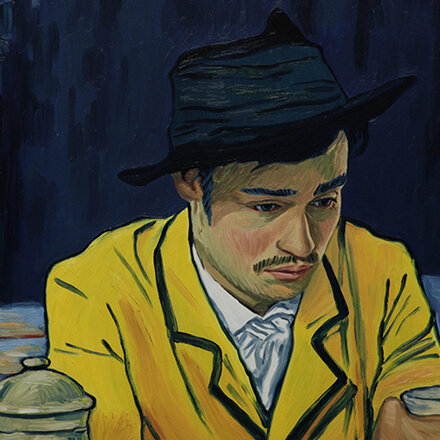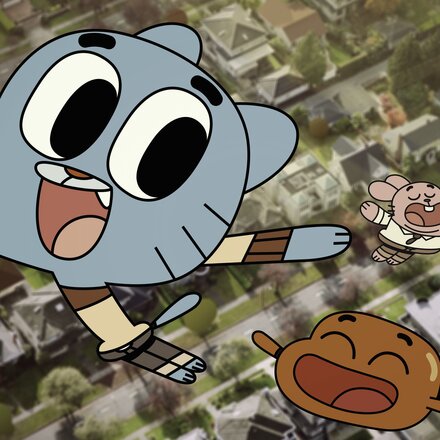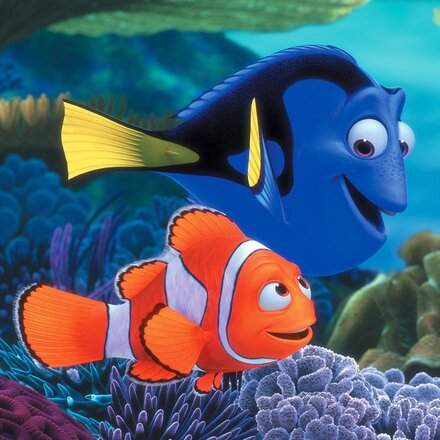Short Animation Winner 2012 | A Morning Stroll
Watch the trailer for BAFTA-winning animation A Morning Stroll and read its writer/director Grant Orchard's advice on breaking into the industry.
Published on 7 September 2012.
What first inspired you to get into animation?
I always loved animation, as most kids do, but Disney films and their like were polished, perfectly formed products; almost mechanically made like a shiny plastic toy. It was inconceivable to me that a human hand would be involved in its making.
It wasn’t ‘til I saw Fourmations on Channel 4 in the early 90s that the creators behind lots of different forms of animation were made visible. Fourmations was a series made up of lots of different short animated films from across the world. After they screened each film they would usually have an interview with the filmmaker in their studio. This was revelatory and made me aware for the first time that this was something you could actually do. Shame there’s nothing on TV of a similar vein these days.
How did you first break into the industry?
I originally went to Farnham College of Art and Design, which then was the only course in the country that did animation at degree level. After I graduated, I desperately looked around for any kind of work in the industry. Luckily as I came through their door, Studio AKA were looking for a runner and hired me – and I’ve been there pretty much ever since.
Were there any people who supported/mentored/championed you early on? How important are these kinds of relationships?
I got fantastic training and support from the animators I was surrounded by when I first arrived at Studio AKA (then known as Pizazz Pictures). This was 15 years ago and traditional 2D animation was the only form of animation done there, and it was done with such vigour and dedication that that passion and desire to master it as a craft was very addictive.
The studio was full of animators who came from the Richard Williams stable, and full of animators who went off to Disney and Dreamworks to become their main animators. So the place was full of experience which you couldn’t help but tap into, and I’m glad I did because those skills I learnt have been the basis of everything I’ve done since, no matter what the medium has been.
Later, but no less importantly, was my relationship with onedotzero, the digital arts festival. They picked up on my first film Welcome to Glaringly, which was funded by Channel 4, but more importantly really encouraged me to finish the first film I had made on my own. I made PARK FOOT BALL as a test really, and didn’t know what to do with it; being pre Vimeo/YouTube, it had no platform. Onedotzero toured it around the world and gave it a reason to be made. It was heartening that something that you made in your own living room could be seen by people worldwide – that was very inspiring.
If you hadn’t managed to break into animation, what was your plan B?
Carpentry.
Which professional figure in animation do you find the most inspiring?
Ooh hard one. I love so many animators, people like Michaël Dudok de Wit, Stuart Hilton, Miyazake. I tend not to be consciously influenced by other animators. I’m sure I am, all the time. But if I’m looking for inspiration, or asked to name people I’m inspired by, it tends to come from other fields – like comic artist Chris Ware or novelist Will Self.
Which film/TV programme do you wish you could have worked on and why?
I find it hard enough working on my own films, so the thought of working hard on someone else’s doesn’t really occupy my mind. In fact it’s exhausting. Yellow Submarine would have been good to work on, but then I’d have to go back to the 60s when they didn’t have microwaves and wet wipes, and who wants that?
What single piece of advice would you give to an aspiring animator trying to stand out from the crowd?
Don’t make a film to stand out from the crowd, just make a film that you feel passionately about (unless the film you make is about standing out passionately). Also, don’t invest in a film so completely with the intention of blowing everyone away. You’ll probably never finish it because of self-imposed pressure and consequently indecision. It’s all about making as much as you can, as well as you can, and learning from all your shitty mistakes.
How do you think animation will change in the next few years?
I don’t think how we create animation will change radically. I’m sure how we consume animation will change though. It’s already radically changed with YouTube etc. There’s a massive audience online with a definite desire for content, it’s just how we realise that content when funding and payment for making quality animation is so hard to find.


